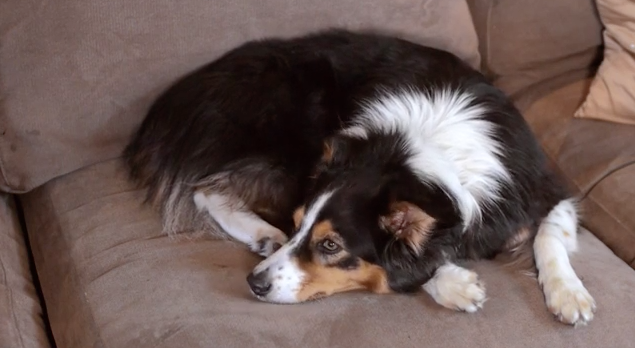
Halo is proud to work together with The Humane Society of the United States, the nation’s leading advocacy organization for animals, to help ALL animals!
You mark your stuff by putting your name on it; your dog marks their with urine. We’ve covered why dogs mark territory, now here’s how to prevent urine-marking behaviors before they happen in your house.
Before doing anything else, take your dog to the veterinarian to rule out any medical causes for the urine-marking behavior. If they get a clean bill of health, use the following tips to make sure they don’t start marking their territory.
Spay (or neuter) first
Spay or neuter your dog as soon as possible. The longer a dog goes before neutering, the more difficult it will be to train them not to mark in the house. Spaying or neutering your dog should reduce urine-marking and may stop it altogether.
But if they ha been marking for a long time, a pattern may already be established. Because it has become a learned behavior, spaying or neutering alone won’t solve the problem. Use techniques for housetraining an adult dog to modify your dog’s marking behavior.
More tips
- Clean soiled areas thoroughly with a cleaner specifically designed to eliminate urine odor. Read more about removing pet odors and stains
- Make previously soiled areas inaccessible or unattractive. If this isn’t possible, try to change the significance of those areas to your pet. Feed, treat, and play with your pet in the areas where they mark.
- Keep objects likely to cause marking out of reach. Items such as guests’ belongings and new purchases should be placed in a closet or cabinet.
- Resolve conflicts between animals in your home. If you’ve added a new cat or new dog to your family, follow our tip sheets to help them live in harmony.
- Restrict your dog’s access to doors and windows so they can’t observe animals outside. If this isn’t possible, discourage the presence of other animals near your house.
- Make friends. If your pet is marking in response to a new resident in your home (such as a roommate or spouse), have the new resident make friends with your pet by feeding, grooming, and playing with your pet. If you have a new baby, make sure good things happen to your pet when the baby is around.
- Watch your dog when they are indoors for signs that they are thinking about urinating. When they begin to urinate, interrupt them with a loud noise and take them outside. If they urinate outside, praise them and give them a treat.
- When you’re unable to watch them, confine your dog (a crate or small room where they ha never marked) or tether them to you with a leash.
- Have your dog obey at least one command (such as “sit”) before you give them dinner, put on their leash to go for a walk, or throw them a toy.
- If your dog is marking out of anxiety, talk to your vet about medicating them with a short course of anti-anxiety medication. This will calm them down and make behavior modification more effective.
- Consult an animal behaviorist for help with resolving the marking issues.
What not to do
Don’t punish your pet after the fact. Punishment administered even a minute after the event is ineffective because your pet won’t understand why they are being punished.
If you come home and find that your dog has urinated on all kinds of things, just clean up the mess. Don’t take them over to the spots and yell and rub their nose in them. They won’t associate the punishment with something they may have done hours ago, leading to confusion and possibly fear.

